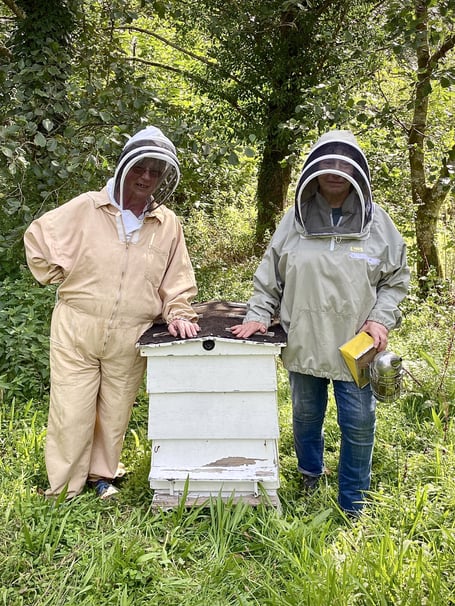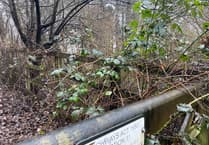Tavistock Beekeepers are spreading a warning word about the Asian Hornet following the recent reported rise of sightings, both locally and throughout the UK.
To educate residents further on the matter, they will be running a stall in Bedford Square tomorrow (Friday, September 8) from 9am to 4pm where they will be handing out leaflets and further information and will also be available to speak with on the matter.
Kate Crozier, a Tavistock Beekeeper, said: “This year the Asian Hornet is invading our shores. This predatory insect is originally from Asia. It arrived in France, from China, in some flower pots in 2004 and since then it has spread, at the rate of 70 miles per year, through France, Spain, Portugal, Germany and Belgium.
“This insect lives off bumblebees, butterflies, solitary bees, wasps, honeybees and pretty well any flying insect. It has had a massive impact on the insect populations and on beekeeping in Europe. If this wasn’t enough, the nests can be a direct threat to people. The nests are similar to very large wasp nests, and may be found in treetops, bushes, under rooves, in bramble patches and on cliffs.
“Asian Hornets are not aggressive when buzzing around eating other insects, but if you get close to their nests, they are very defensive and will mount a serious attack.”
Thirty three nests have been reportedly identified and destroyed, two of which were in the Plymouth area.
Kate said: “The Asian Hornet is a predator of all our flying insects from our beloved bumblebees, butterflies and solitary bees to our unfairly maligned wasps and European hornets. The Asian hornet is slightly smaller that the European; it looks black in flight, with a bright orange rear.”
A government designed and run app for smartphones and tablets called ‘Asian Hornet Watch’ is available from downloading platforms and provides more information on what the insect looks like, also allowing users to submit a report about a suspicious insect with accompaning photographic or video evidence.
People are advised not to go near a suspected Asian hornets nest but instead report it via the app to Non-Natives Species Secretariat (NNSS) who have responsibility to arrange for tracking a destruction of a confirmed nest.
Regarding tomorrow’s stall, Kate added: “There will be several of us to come and speak with. We have got several dead Asian hornets set in plastic. Three of us are going to Jersey next week to learn how to mark and track the insects, hopefully then we will have many specimens to show people and maybe even a dead nest but that will be for a stall in the spring.”
The beekeepers will also have a hive like the one pictured above with detailed posters and an opportunity for honey tasting to show the difference between samples of local honey and those from further afield.

-Val-Vine.jpeg?width=209&height=140&crop=209:145,smart&quality=75)



Comments
This article has no comments yet. Be the first to leave a comment.